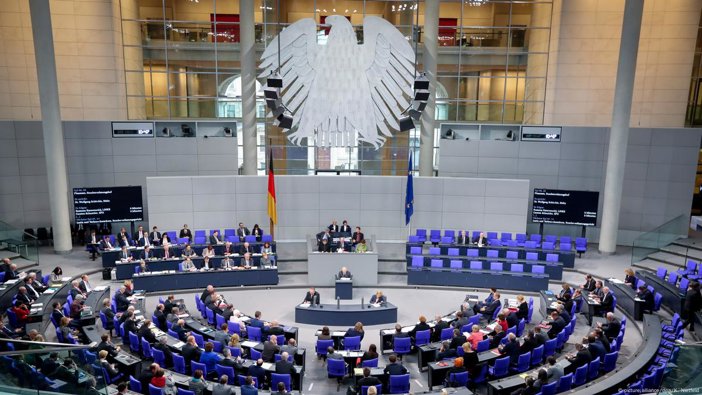
Bundestag Bars AfD Staffers Over Security Vetting Failures
The Bundestag has declined Hausausweise for multiple AfD employees and cut IT privileges, citing serious security concerns under its reliability checks.
The German Bundestag’s administration has refused to issue parliamentary passes (Hausausweise) to three employees of members of the Alternative for Germany (AfD) party and revoked IT access for a fourth stern.de.
The official justification: possible misuse of access for “constitutional enemies”. Specifically, the administration stated that for all rejected applicants, it seemed possible that gaining entry to Bundestag premises could be misused “for purposes hostile to the constitution.” correctiv.org
Scope and Who Is Affected
- Number of individuals: Three AfD staffers had their pass applications denied; one additional AfD staffer lost access to Bundestag IT systems, including the internal intranet Tagesspiegel.
- Parties involved: Only AfD staff were reported to be affected. Other parties have stated that no similar cases are known in their ranks Tagesspiegel.
- Transparency: Neither the Bundestag administration nor the AfD have disclosed detailed identities of the individuals or the specific allegations. The AfD claims it was informed of the decisions, but says more detailed commentary is not possible, as the hiring of personal staff is the prerogative of individual members of parliament Tagesspiegel.
Legal and Institutional Basis
- The Bundestag employs a “Zuverlässigkeitsüberprüfung” (reliability/security vetting) for all staff who require a parliamentary pass or access to internal systems correctiv.org.
- Since 2023, these reliability checks are repeated annually for all pass holders DIE ZEIT.
- The refusal is grounded in security-related findings from these checks. The risk was described as going beyond mere procedural issues — it was framed as potentially undermining the “functioning, security, integrity, or trustworthiness” of the Bundestag Tagesspiegel.
Statements from Key Figures
- Julia Klöckner, President of the Bundestag (CDU), defended the decisions, stating that the number and seriousness of security-critical evidence made rejection mandatory. She emphasized that there can be no compromises in the internal and external security of the Bundestag.
- An AfD spokesman confirmed that the Fraktion (parliamentary group) was notified of the rejections but declined to provide further details citing privacy, internal procedures, and the fact that hiring of staff is a function of individual members.
The measure arises amid increasing scrutiny of AfD’s connections with extremist ideologies. In recent years, there have been reports and investigations into AfD staff belonging to groups under observation by the Verfassungsschutz (Germany’s domestic security service). The tightening of access controls reflects broader security policy shifts in the Bundestag. After 2017, when AfD first entered the Bundestag, there have been several enhancements in security rules.
Balancing Security, Rights, and Transparency
The Bundestag’s role as the heart of German democracy means it must guard against abuses that could undermine constitutional order. Denying access when credible security concerns exist is consistent with protecting the institution. However, there is also a vital democratic principle: staff of elected representatives require access to do their jobs effectively. Restricting such access can hamper representation and parliamentary function, particularly when the affected are personal staff of MPs.
Lack of Specificity in Public Information
One of the biggest challenges is that the public statements provide very limited detail. The security vetting process is not transparent — we do not know precisely which criteria failed for which individuals, or what specific evidence led to the conclusions. This opacity can foster mistrust, especially from the AfD side and their constituents, who may see this as political targeting or due process being bypassed.
Legal Safeguards and Appeal
German law provides for vetting procedures and limitations where constitutional security is at stake. Any individual denied access should have recourse (legal or administrative) to challenge the decision, especially given the high stakes (loss of work, impact on duties). The reports do not yet clarify what mechanisms exist or have been used for appeal in these specific cases.
Precedents and Consistency
- The Bundestag has, in past years, implemented stricter controls for access and reliability checks. The annual review of pass holders as of 2023, for example, suggests security concerns are not new DIE ZEIT.
- Ensuring that the policy is applied evenhandedly is critical; if only staff from one party (AfD) are affected, that may be a natural result of where the evidence points — but makes fairness in process especially important.
Implications and Possible Outcomes
- Institutional Trust: If security is perceived as being applied fairly and with transparency, the Bundestag’s approach may become more widely accepted. But if perceptions of bias grow, it could deepen political polarization or claims of suppression.
- Legal Challenges: Affected individuals (or the AfD) might pursue legal action arguing that their rights (e.g., employment, freedom to perform duties) are being infringed. Courts may be asked to review whether vetting criteria were reasonable and whether decisions followed due process.
- Policy Reforms: The controversy could prompt clearer regulations: what evidence is sufficient, what appeals look like, how much detail must be disclosed publicly without compromising security.
- Precedent for Access Rules: This case could become a reference point for future decisions about access for political staff, especially in contentious parties or with extremist associations. It may also influence how parliamentary security systems are structured in other democracies.
Conclusion
The Bundestag’s refusal to grant passes or IT access to certain AfD staffers stems from its responsibility to protect parliamentary integrity from misuse by persons suspected of affiliations or intentions hostile to constitutional order. While the move aligns with institutional security demands, its lack of transparency and potential implications for democratic representation raise important questions.
To fully assess the legitimacy and fairness of the decisions, more information is needed around the specific evidence, due process, and rights of appeal. Meanwhile, the case underscores the tension between openness in democracy and guarding against internal threats — a balance that many liberal democracies face.
Source: stern.de, correctiv.org, Tagesspiegel, DIE ZEIT






